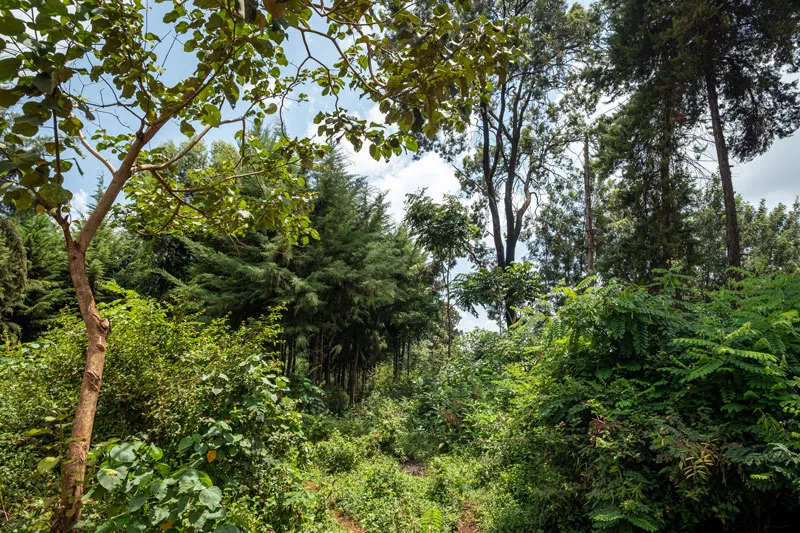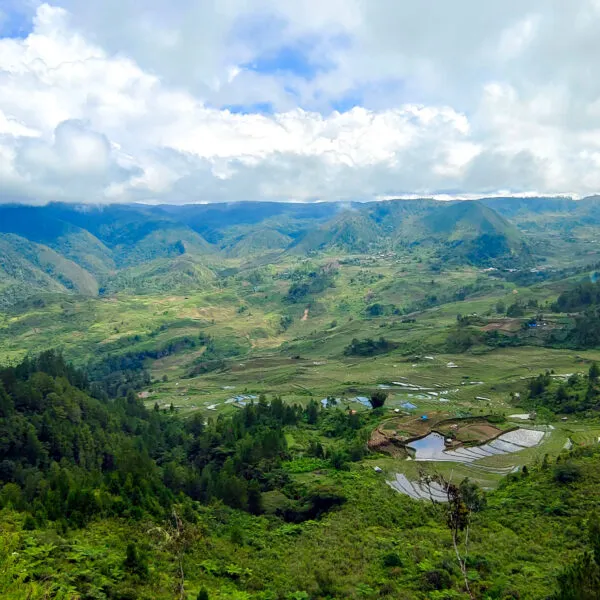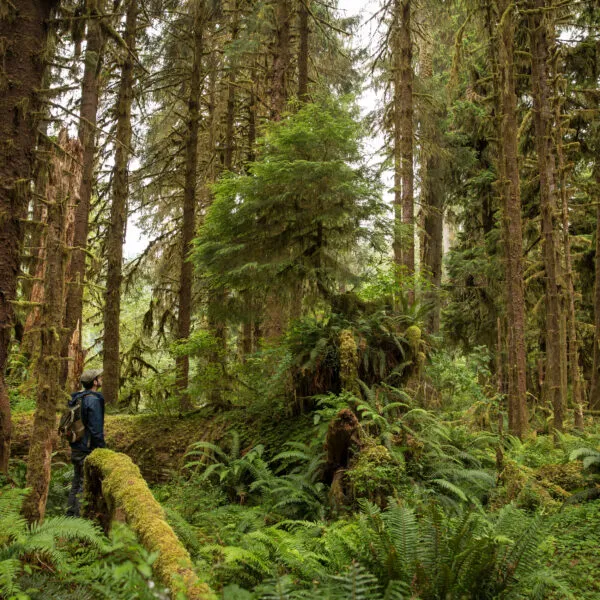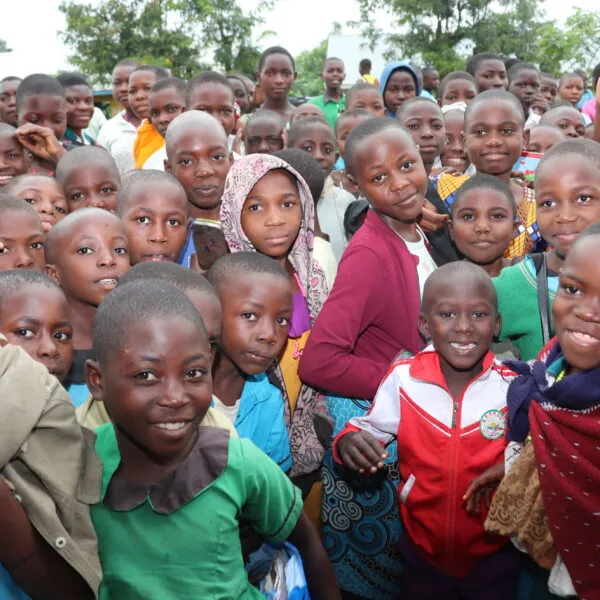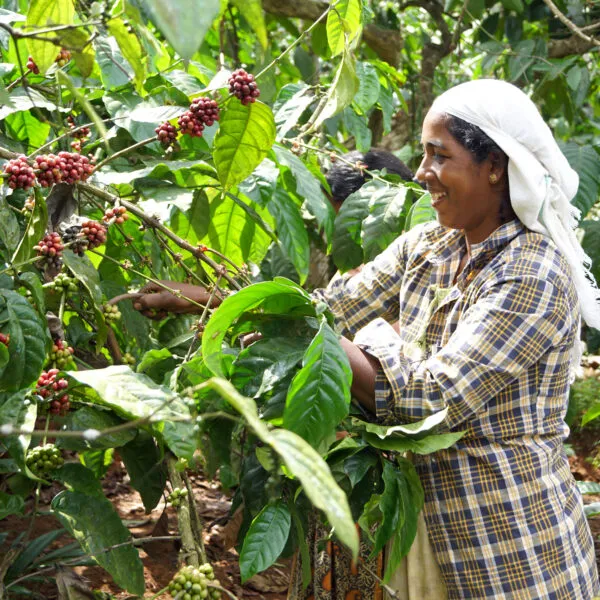The iconic forested landscape of Mount Kenya is home to a wide array of precious natural resources and wildlife—from glacier-fed water reservoirs to rare species like the albino zebra. The environment around the mountain is also an important agricultural zone for hundreds of thousands of smallholder coffee and tea farmers. These farmers are increasingly feeling the effects of climate change with higher temperatures, unpredictable rainfall changing growing cycles, and increasing cases of pests like tea mites and tea weevils. Combined with aging coffee and tea bushes and rising production costs, among other challenges, many farmers are left struggling to maintain their livelihoods.
According to a United Nations report, approximately 12 million people in Kenya live on degraded land and food productivity has fallen behind the rate of population growth. This has resulted in farmland extending up the mountain and encroaching into protected forests. It has also increased dependency on forest resources as communities turn to illegal logging, livestock grazing, and unsustainable forest-based enterprises to earn extra income.
Through the Mount Kenya Sustainable Landscape and Livelihoods Program, we are building on our earlier work in the region to bring communities, companies, government agencies, and institutions together to manage Mount Kenya’s precious land and resources more sustainably, while improving farmer livelihoods. With an emphasis on engaging local women and youth, we aim to build the capacity of farmers and community members throughout the region to create vibrant, equitable rural economies.
Location
- Kirinyaga County, Central Region, Kenya
- Embu County, Central Region, Kenya
Period
2020 – 2026
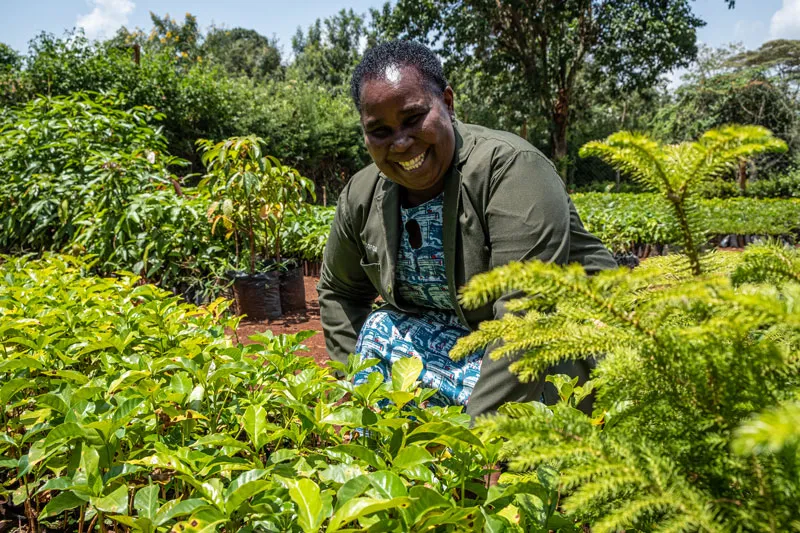
Photo credit: Joost Bastmeijer
Partner communities
Project activities are expected to serve:
- Smallholder farmers: 25,000 smallholder coffee farmers and 25,000 smallholder tea farmers
- Forest-dependent communities: 1,000 members of Community Forest Association (CFAs) and Water Resource Users Associations (WRUAs)
- Farmer cooperatives: five tea factories and eight coffee cooperatives in Kirinyaga county
- Government, institutions, and civil society: local governments, NGOs, community-based organizations, and schools within the landscape
Project objectives: bringing communities together under shared landscape goals
The project aims to support Mount Kenya’s farming communities to conserve and better manage their resources so that they can collectively increase their incomes and better adapt to the effects of climate change.
Our work will follow four main pathways:
- Implement an Integrated Landscape Management approach
Our research and experience at the Rainforest Alliance has shown us the value of an Integrated Landscape Management (ILM) approach. A landscape approach brings all land users together to discuss common interests and determine collective actions. Through the project, we will set up county-level Landscape Management Boards (LMBs) that include coffee and tea smallholders, women, youth, CFAs, and WRUA members. - Build resilience through climate-smart agriculture and alternative livelihoods training We will train farmers on regenerative and climate-smart agricultural practices that can help them increase their yields and incomes. In addition, we will raise awareness around the importance of involving women and youth in alternative, income-generating activities—like honey production, tree nurseries, clean energy technologies, and insect farming for animal feed production, among others.
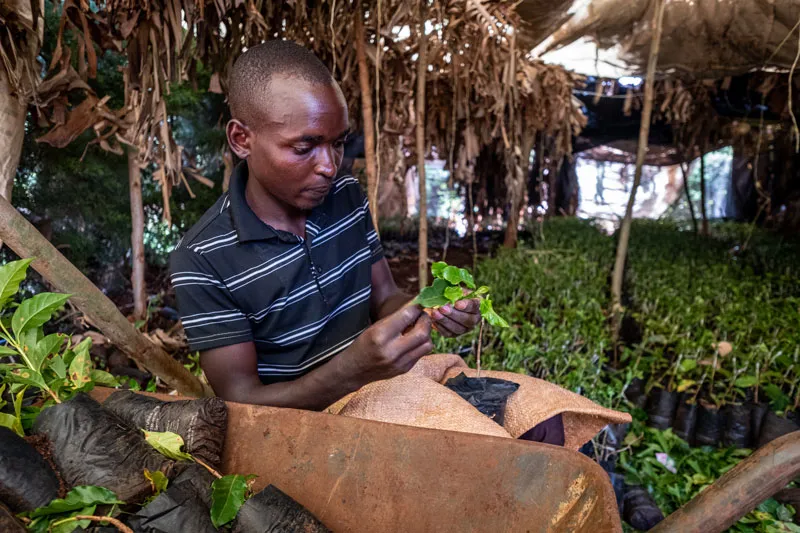
Grafting coffee seedings in a community-run tree nursery in Mount Kenya.
Photo credit: Joost Bastmeijer
This will be followed by inclusive, farm business training and technical support for farmers looking to develop environmentally friendly business enterprises. Our Lead Farmer model (a training model where trained farmers teach their colleague farmers) and Farmer Field Schools will aid in these endeavors. At the same time, our Digital Information System will give farmers access to real-time technical and market information. - Connect landscapes to funding
Once the LMBs are operational, they will develop Sustainable Landscape Development Plans to prioritize landscape funding needs and develop business cases for community projects. Business cases will be used to reach out to potential financiers. The Rainforest Alliance will serve as a key partner in this by connecting coffee and tea farmer groups to companies that reward quality and innovation through premiums and better trade terms. - Widespread landscape restoration
This pathway will focus on growing conservation efforts from small pilots to landscape-wide initiatives. We will work with farmers, government agencies, schools, and community organizations to advance the overarching rehabilitation of Mount Kenya’s degraded forests and riparian strips (land alongside waterways on which vegetation and trees are planted) in both public and private areas. We will also engage local schools to ensure that this knowledge is passed on.
Desired impacts: strong partnerships for thriving, inclusive landscapes
The overarching goal of the project is to improve the livelihoods and resilience of communities across the Mount Kenya region, especially those of women and youth.
To that end, the project aims to achieve the following outcomes:
- Full participation from local communities, private sector, and public sector in LMBs
Communities will be organized into different clusters and representatives will be selected to sit on the LMB, with one LMB for each of the two counties. - Resilient farming communities and improved livelihoods for women and youth
Through the project, we aim to reach 33,400 men, 16,101 women, and 5,000 youth with training and support that helps them set up environmentally friendly business enterprises and take a more gender-inclusive approach to coffee and tea farming. By facilitating partnerships between companies and farmers, more investment will be directed to smallholders and their communities. - Strengthened farmer groups on monitoring and decision-making
The project is targeting members of farmer groups throughout Kirinyaga and Embu counties (25,000 tea farmers and 25,000 coffee farmers), providing them with tools and support to make better decisions about their landscapes. - Restored forests throughout the landscape
CFAs, WRUAs, and other landscape stakeholders will be better able to rehabilitate degraded forests and riparian strips in government-controlled forests, community forests, and individually owned forests. By raising awareness in local schools, we will help safeguard this knowledge for future generations.
Funders
Implementing partners
- The Kenya Tea Development Agency
- Nature Kenya
- Coffee Management Services
- Kenya Scouts Association
